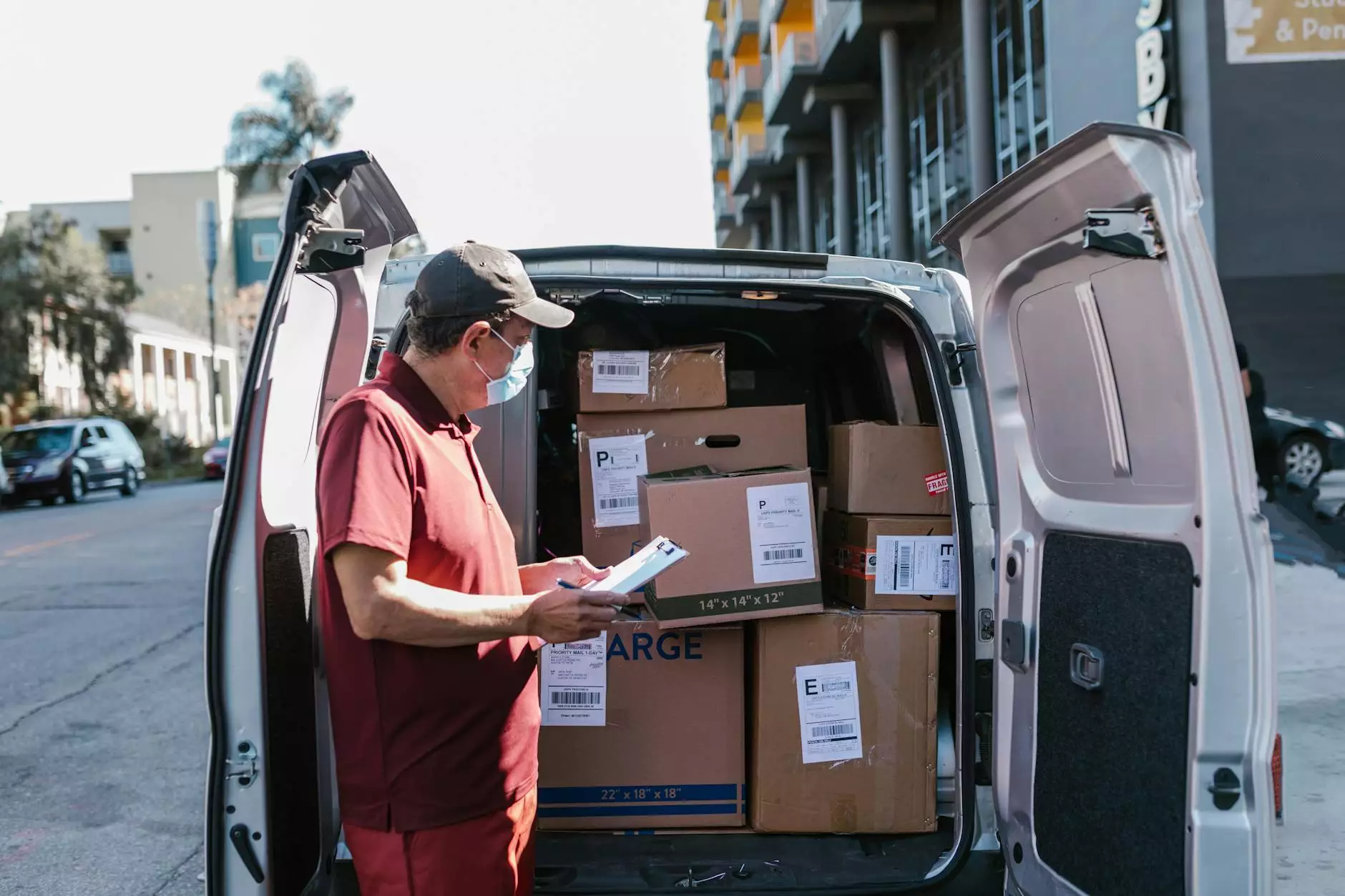Comprehensive Guide to Effective Transport Dispatch in Business Operations

In the rapidly evolving landscape of modern commerce, efficient transport dispatch plays a pivotal role in ensuring that goods are delivered promptly, costs are minimized, and customer satisfaction is maximized. As companies across industries such as transportation, vehicle shipping, and business consulting strive for operational excellence, understanding the intricacies of transport dispatch becomes essential. This comprehensive guide delves into the core principles, innovative strategies, and technological advancements shaping successful dispatch operations.
Understanding the Significance of Transport Dispatch in Business
Transport dispatch is the backbone of supply chain management, involving the coordination of vehicle movements, driver schedules, route planning, and real-time communication. Proper dispatch ensures that shipments are handled efficiently, reducing delays and optimizing resource utilization.
In the context of industries like vehicle shipping, logistics, and consulting, dispatching affects overall business performance. Effective dispatch results in:
- Reduced transportation costs
- Improved delivery times
- Enhanced fleet utilization
- Better customer satisfaction
- Streamlined operations
Furthermore, a well-executed transport dispatch system can provide a competitive edge by enabling businesses to adapt swiftly to market demands and operational challenges.
The Role of Advanced Technology in Modern Transport Dispatch
Today's transportation and logistics companies leverage cutting-edge technology to revolutionize dispatch operations. Technologies such as GPS tracking, route optimization software, and data analytics are transforming how businesses manage their fleets.
Key technological tools include:
- GPS Tracking Systems: Real-time vehicle location awareness allows for immediate adjustments and improved accountability.
- Route Optimization Software: Algorithms that calculate the most efficient routes, considering traffic, weather, and delivery windows, saving time and fuel.
- Automated Dispatch Platforms: Centralized systems that assign jobs dynamically, reduce manual intervention, and enhance efficiency.
- Data Analytics and Business Intelligence: In-depth insights into operational data enable strategic decision-making and continuous improvement.
Integrating these technologies into your dispatch operations facilitates transparency, efficiency, and scalability, ultimately contributing to business growth and customer loyalty.
Best Practices for Successful Transport Dispatch
Achieving peak dispatch efficiency requires meticulous planning, continual monitoring, and adaptive strategies. Here are essential best practices:
1. Implement Robust Planning and Scheduling
Effective dispatch begins with detailed planning. Utilize data-driven scheduling tools to allocate vehicles and drivers based on delivery priorities, driver availability, and cargo specifics. Incorporate flexibility to accommodate unforeseen circumstances.
2. Embrace Real-Time Communication
Maintain open channels with drivers and fleet managers through reliable communication platforms. Real-time updates on traffic conditions, delays, and delivery changes enable quick decision-making.
3. Optimize Routes Continually
Consistently analyze route performance metrics. Employ dynamic route adjustments to avoid congestion, road closures, and other disruptions. This proactive approach minimizes idling and fuel consumption.
4. Prioritize Safety and Compliance
Ensure all dispatch activities adhere to safety regulations and industry standards. Regular driver training and vehicle inspections are vital for maintaining safety and operational integrity.
5. Leverage Data Analytics for Continuous Improvement
Collect and analyze dispatch-related metrics such as delivery times, fuel efficiency, and vehicle utilization. Use this data to identify inefficiencies and implement process enhancements.
6. Foster Strong Customer Relationships
Transparent communication about delivery times and proactive problem resolution build trust and loyalty. Integrate customer feedback to refine dispatch processes further.
The Intersection of Business Consulting and Transport Dispatch
Business consulting services specializing in logistics and transportation can provide invaluable insights to optimize transport dispatch. These experts assess current operations, identify bottlenecks, and recommend strategic solutions tailored to specific business needs.
Some areas where consulting adds value include:
- Supply chain restructuring for increased efficiency
- Technology integration and digital transformation
- Staff training and management strategies
- Risk management and compliance advisory
- Cost reduction and resource allocation
Partnering with experienced consultants enables businesses to adopt innovative practices, stay ahead of industry trends, and achieve measurable improvements in transport dispatch.
Specialized Vehicle Shipping: Challenges and Solutions in Dispatch
Vehicle shipping introduces unique challenges such as handling different vehicle sizes, managing special permits, and ensuring safety during transit. The transport dispatch process must be meticulously executed to meet these demands.
Common Challenges in Vehicle Shipping Dispatch:
- Scheduling multiple pickups and drop-offs
- Coordinating between various carriers and clients
- Ensuring compliance with state and federal transportation laws
- Managing contingency plans for breakdowns or delays
- Maintaining detailed documentation for legal and insurance purposes
Effective Solutions for Vehicle Shipping Dispatch:
- Utilize specialized shipping management software designed for vehicle logistics
- Implement real-time tracking for all shipments for transparency
- Establish clear communication channels with drivers and clients
- Plan flexible routes that account for possible regulatory and logistical constraints
- Develop contingency protocols for unexpected events or delays
By integrating these solutions, companies can enhance their vehicle shipping capabilities, reduce errors, and improve customer satisfaction.
The Future of Transport Dispatch: Trends and Innovations
The landscape of transport dispatch is continually evolving, driven by technological advances and changing market needs. Key trends to watch include:
1. Artificial Intelligence and Machine Learning
AI algorithms can predict delivery issues, optimize routes dynamically, and automate dispatch decisions, leading to smarter and more adaptive logistics operations.
2. IoT (Internet of Things) in Fleet Management
Sensors and connected devices provide granular data on vehicle health, driver behavior, and environmental conditions, enabling proactive maintenance and operational adjustments.
3. Blockchain for Transparency and Security
Blockchain technology enhances data security, transparency, and accountability in dispatch records, contracts, and transactions.
4. Sustainable Logistics Practices
Eco-friendly dispatch strategies focus on reducing carbon footprints through route planning, fleet electrification, and sustainable packaging.
5. Integration with E-commerce Platforms
Seamless integration enables real-time dispatch updates directly linked to sales channels, improving delivery accuracy and customer experience.
Conclusion: Elevating Your Business with Expert Transport Dispatch Strategies
Efficient transport dispatch forms the core of successful logistics and supply chain management. By harnessing the latest technologies, adopting best practices, and collaborating with industry experts, your business can achieve unparalleled operational efficiency and customer satisfaction.
At LogityDispatch, we specialize in providing innovative solutions tailored to transportation, business consulting, and vehicle shipping industries. Our comprehensive approach ensures you stay ahead in a competitive marketplace, optimize costs, and deliver excellence every time.
Invest in smart dispatch strategies today—because your business’s growth depends on it. The future of logistics is dynamic, and those who adapt quickly will lead the way.









